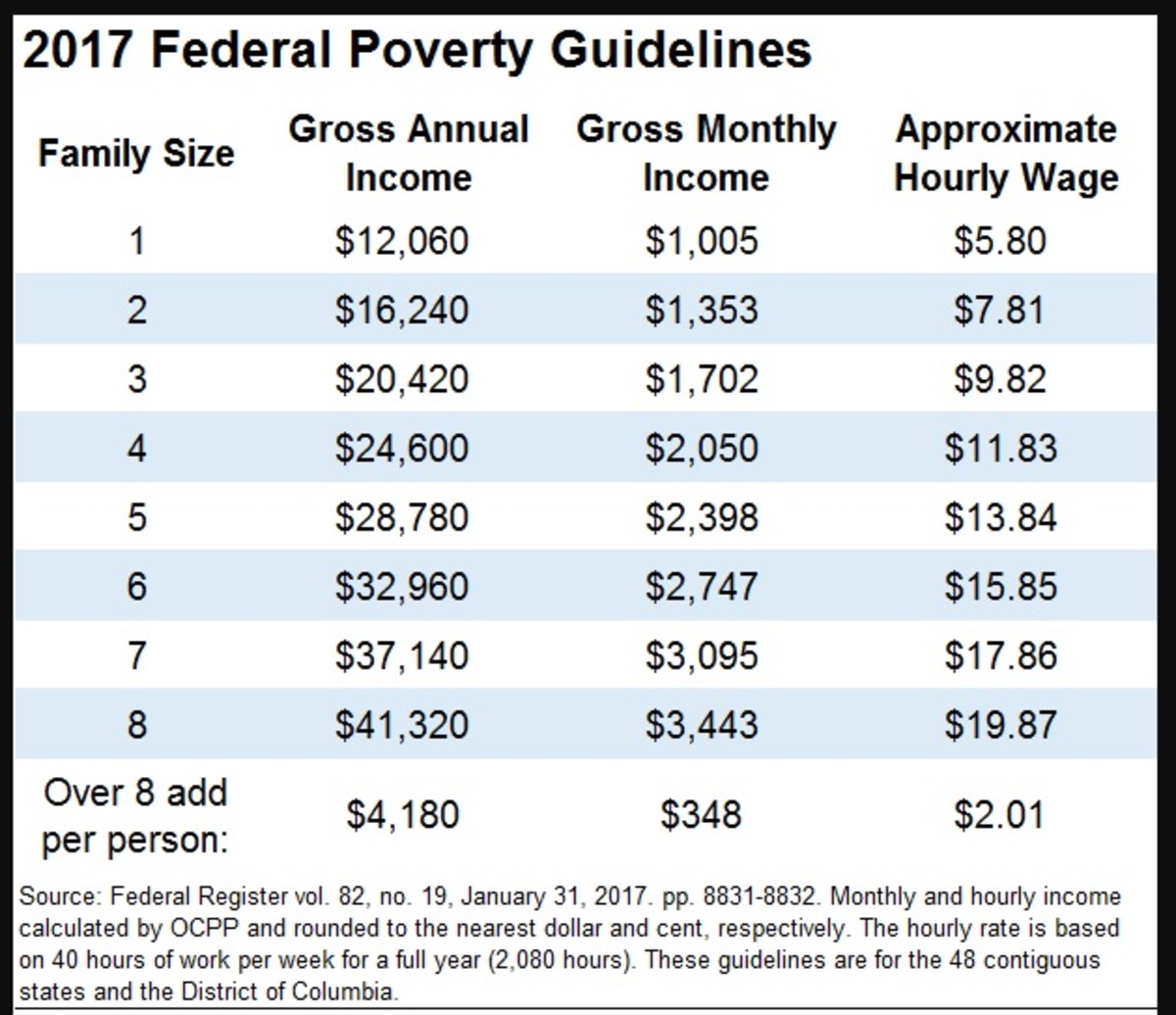Federal Poverty Guide Lines Food Stamps 2017
The income standards for SNAP are based the federal poverty levels (FPL). Effective October 1, 2017, the gross monthly income limits and net monthly income. 2018-2019 Federal Income Guidelines. Skip to main content. Navigation menu. Department of Health. Birth, Death, Marriage & Divorce.
Food Supplement Program Supplemental Nutrition Assistance Program (SNAP) is a food supplemental program that enables low-income families to buy a variety of food that is the basis for better nutrition. Benefits are issued electronically to the family's Delaware Food First card each month. This is an Electronic Benefits Transfer (EBT) card. The Food Supplement Program recipient uses this card at local grocery stores to access his/her food benefit. The United States Department of Agriculture, Food & Nutrition Service (FNS), is the federal agency responsible for overseeing the Food Supplement Program.
Please see our page for the FNS website. To apply for (SNAP) food supplement benefits Eligibility Eligibility for this service is based on factors such as who lives and eats together as well as relationships in the home and income. All children 21 years of age and younger who live with their parents must apply with their parents. You must be a U.S.
Citizen or an eligible alien to qualify. Individuals who receive TANF, GA or Supplemental Security Income (SSI) do not need to meet an income test in order to receive Food benefits. The maximum gross monthly income limit for most other individuals is set at 130% of the Federal Poverty Level (FPL). There is no resource test.

See the chart Food Supplemental Program FOOD STAMP INCOME ELIGIBILITY STANDARDS AND MAXIMUM ALLOTMENTS October 1, 2016 – September 30, 2017 Household Size Maximum Gross Monthly Income 130% FPL Maximum Allotment 10/2016 1 $1,287 $194 2 $1,736 $357 3 $2,184 $511 4 $2,633 $649 5 $3,081 $771 6 $3,530 $925 7 $3,980 $1,022 8 $4,430 $1,169.For each additional person add $146 $146 Additional Food Assistance Resources. Helps low-income women, infants & children up to age 5 who are at nutritional risk.

The U.S. Department of Agriculture also prohibits discrimination based on race, color, national origin, sex, religious creed, disability, age, political beliefs or reprisal or retaliation for prior civil rights activity in any program or activity conducted or funded by USDA. Persons with disabilities who require alternative means of communication for program information (e.g. Braille, large print, audiotape, American Sign Language, etc.), should contact the Agency (State or local) where they applied for benefits. Individuals who are deaf, hard of hearing or have speech disabilities may contact USDA through the Federal Relay Service at (800) 877-8339.
Additionally, program information may be made available in languages other than English. To file a program complaint of discrimination, complete the USDA Program Discrimination Complaint Form, (AD-3027), found online at and at any USDA office, or write a letter addressed to USDA and provide in the letter all of the information requsted in the form.
To request a copy of the complaint frm, call (866) 632-9992. Submit your completed form or letter to USDA by:. (1) mail: U.S. Department of Agriculture, Director, Office of Adjudication, 1400 Independence Avenue, S.W., Washington, D.C. (2) fax: (202)690-7442; or. (3)email at Individuals who are deaf, hard of hearing or have speech disabilities may contact USDA through the Federal Relay Service at (800) 877-8339; or (800) 845-6136 (Spanish). For any other information dealing with Supplemental Nutrition Assistance Program (SNAP) issues, persons should either contact the USDA SNAP Hotline Number at (800) 221-5689, which is also in Spanish or call the State Information/Hotline Numbers (click the link for a listing of hotline numbers by State); found online.
Federal Poverty Guidelines
To file a complaint of discrimination regarding a program receiving Federal financial assistance through the U.S. Department of Health and Human Services (HHS), write: HHS Director, Office for Civil Rights, Room 515-F, 200 Independence Avenue, S.W., Washington, D.C. 20201 or call (202) 619-0403 (voice) or (800) 537-7697 (TTY). This institution is an equal opportunity provider.